Communication Skills for Therapeutic Alliance in Healthcare
VerifiedAdded on 2022/08/26
|7
|626
|20
Report
AI Summary
This report focuses on the critical role of communication skills in healthcare settings. It explores various aspects, including active listening, which enables therapists to understand patient concerns. The report emphasizes the importance of cultural competence in communication, ensuring respect for diverse backgrounds. It also delves into motivational interviewing, highlighting how to identify and address discrepancies to encourage positive change. Furthermore, the report discusses the significance of rolling with resistance and supporting self-efficacy to build a strong therapeutic alliance. Lastly, it underscores the need for effective training and ongoing monitoring to enhance the communication skills of healthcare professionals, thereby improving patient care and outcomes. The report uses various references to support its claims and provides a comprehensive overview of the topic.
1 out of 7
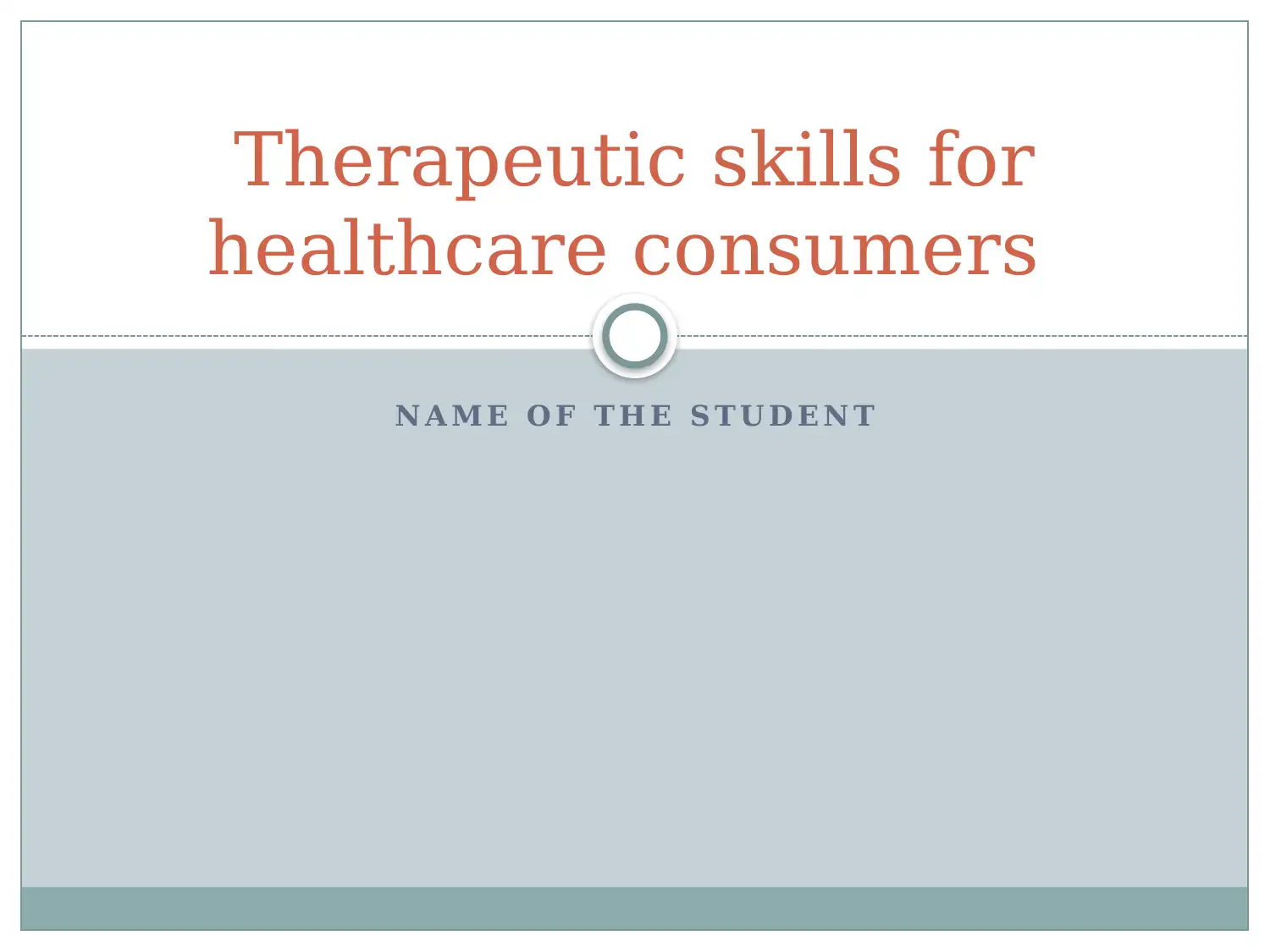
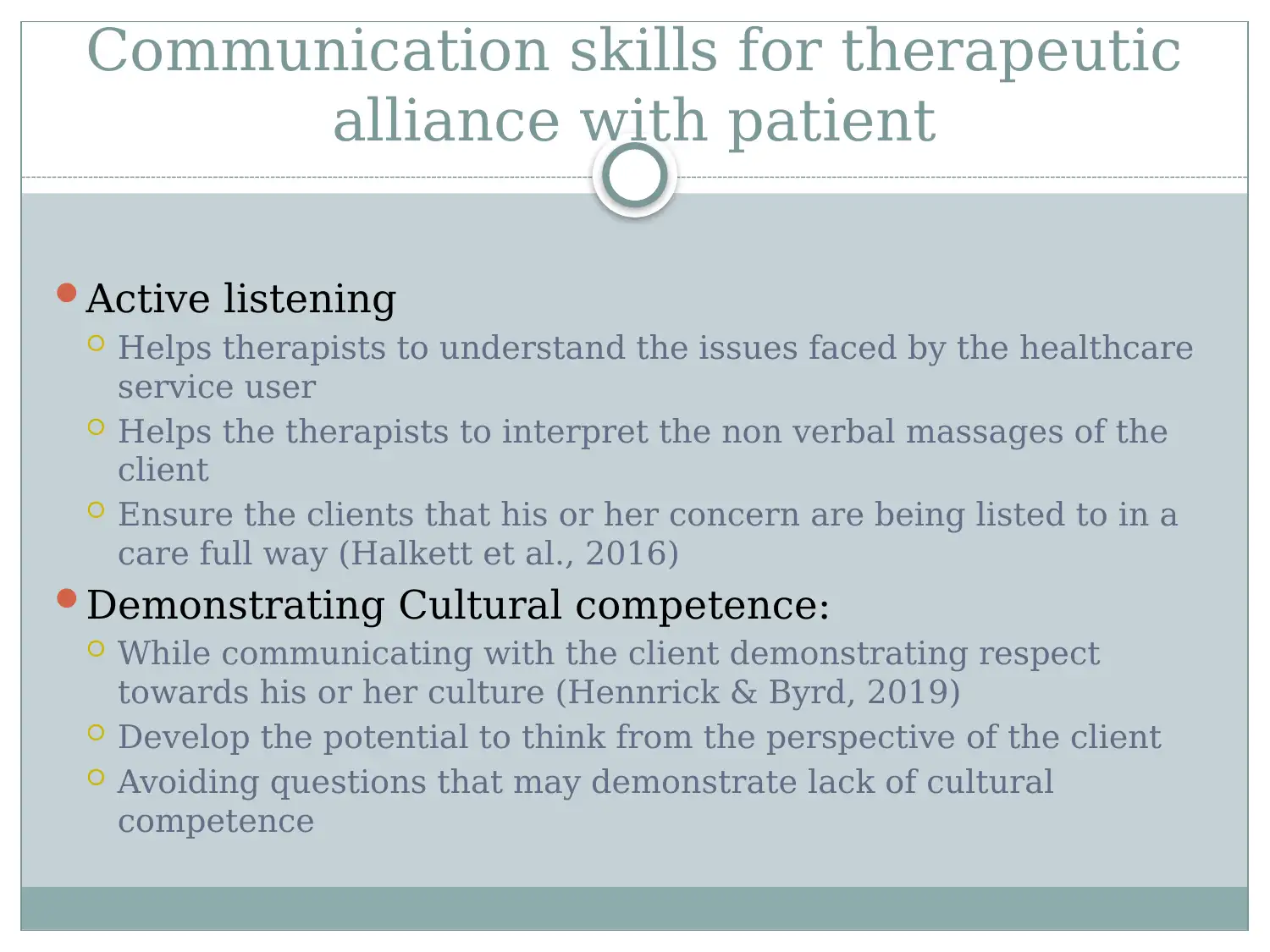
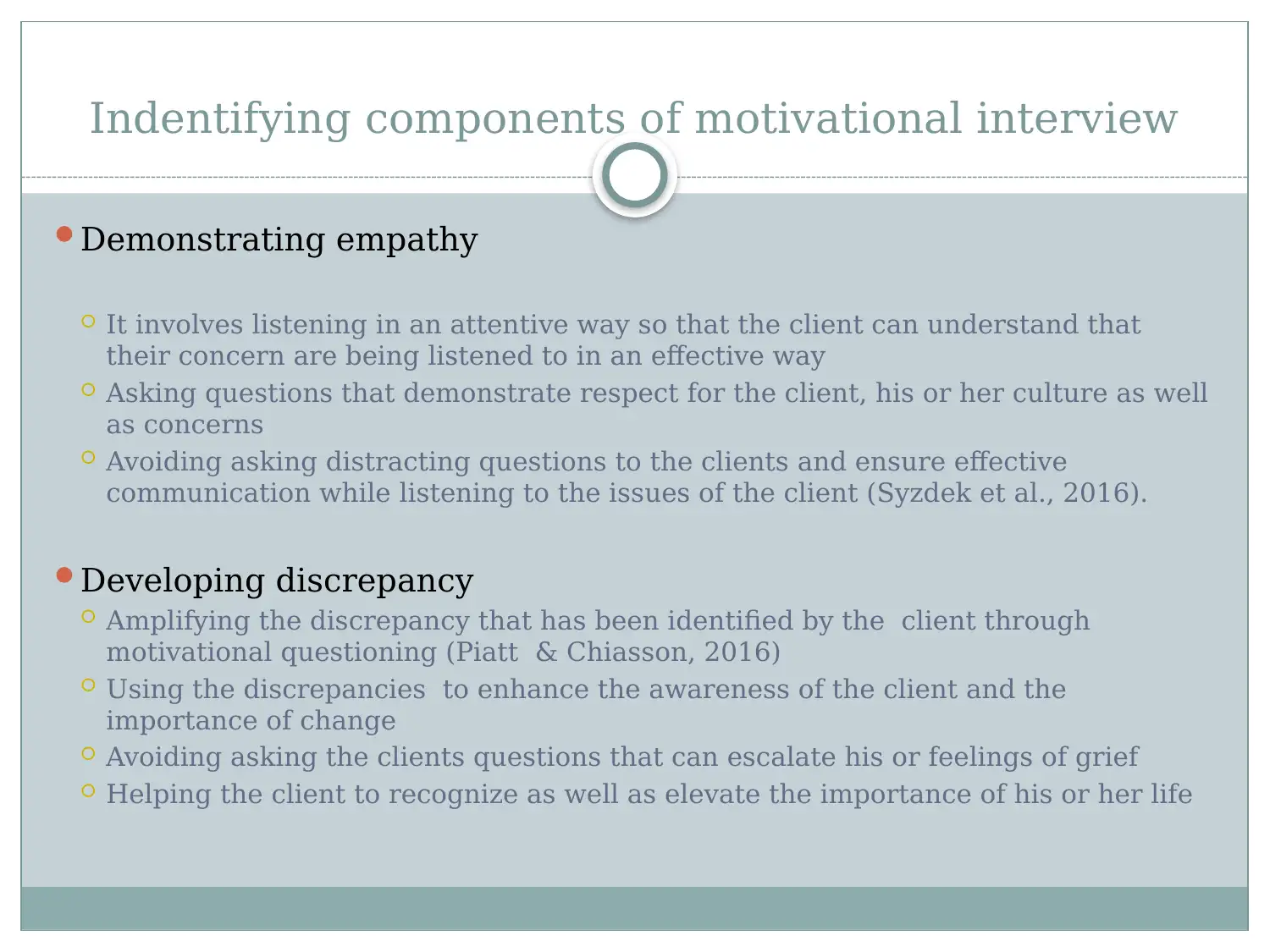

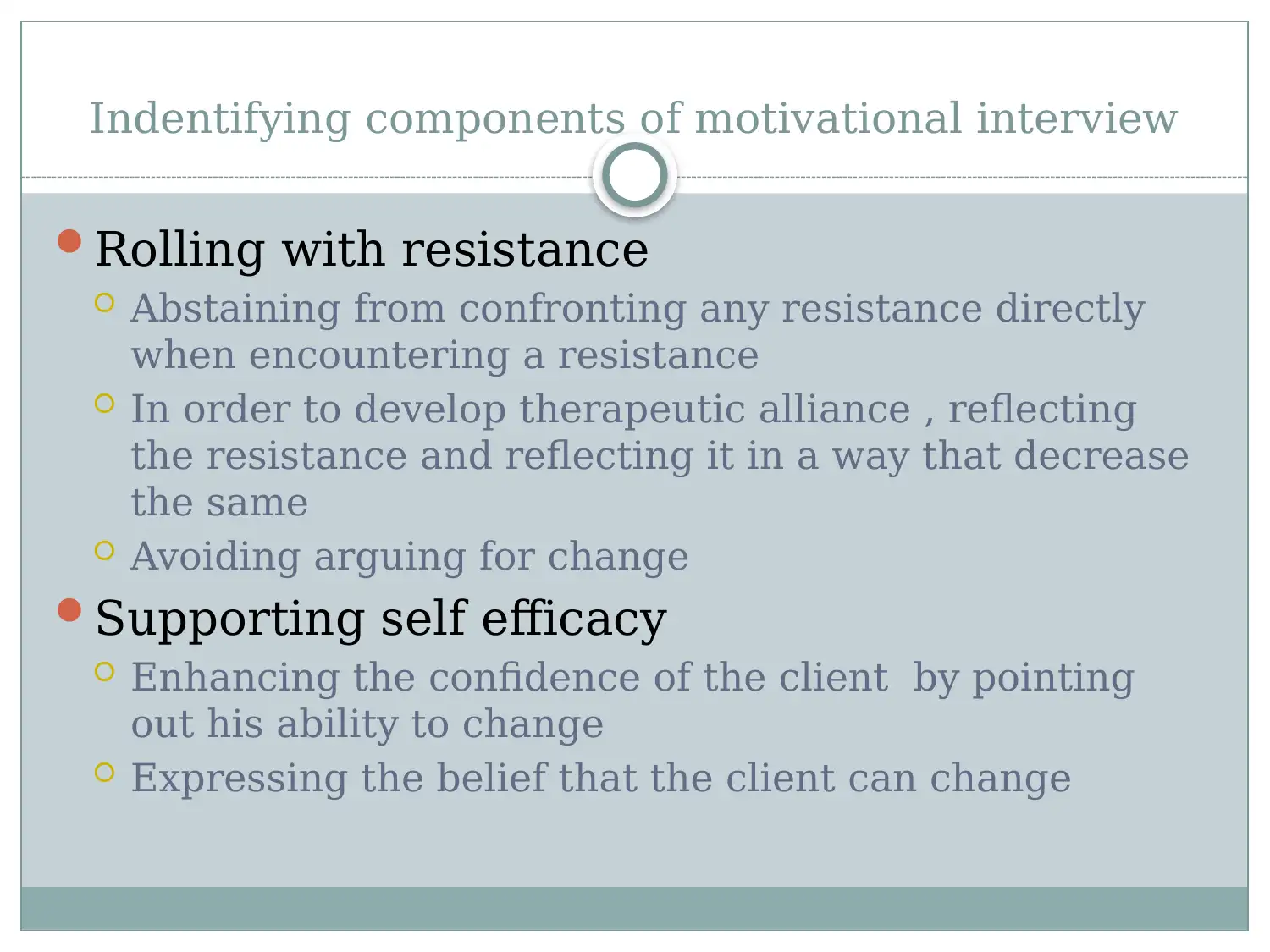
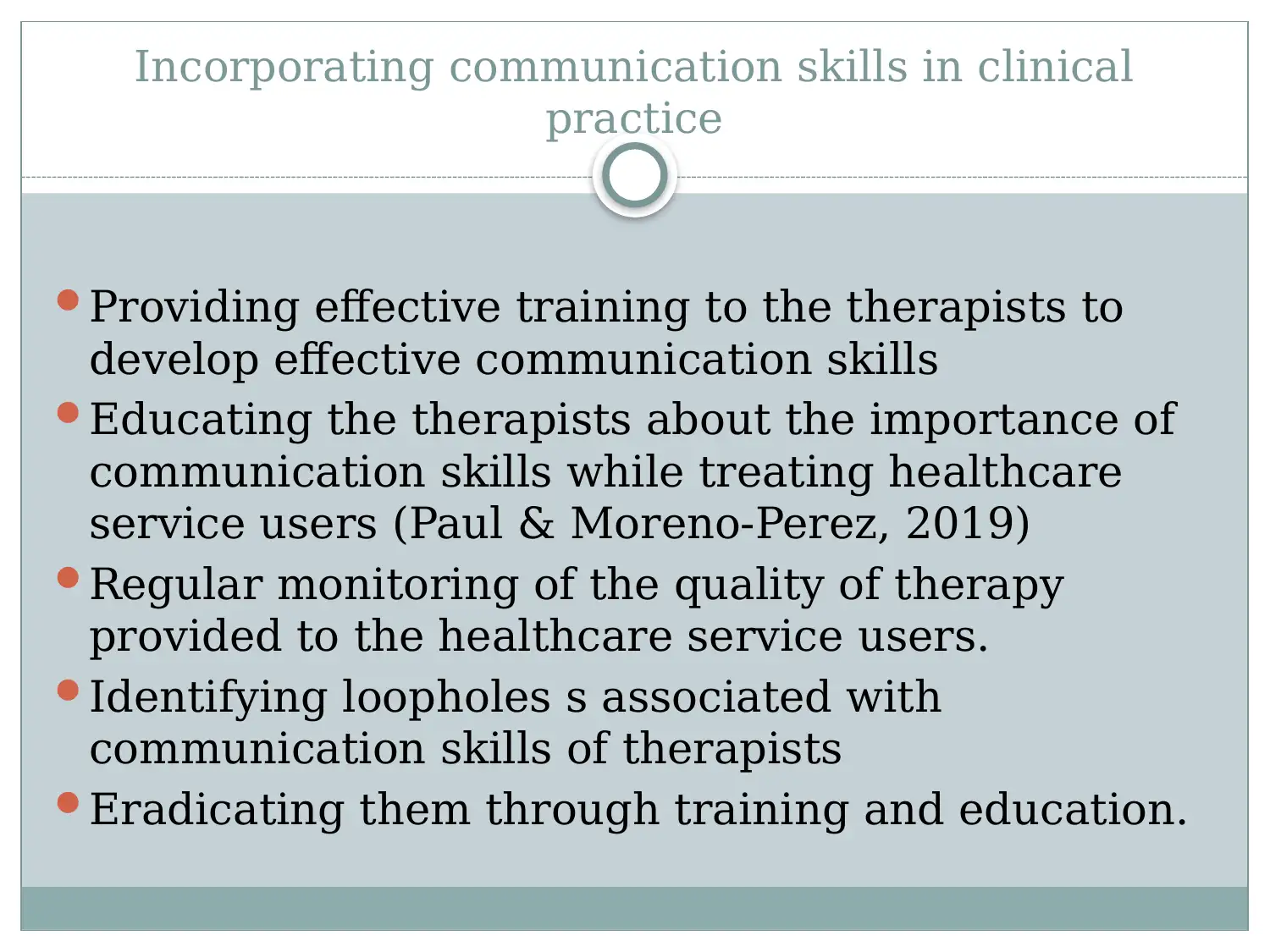
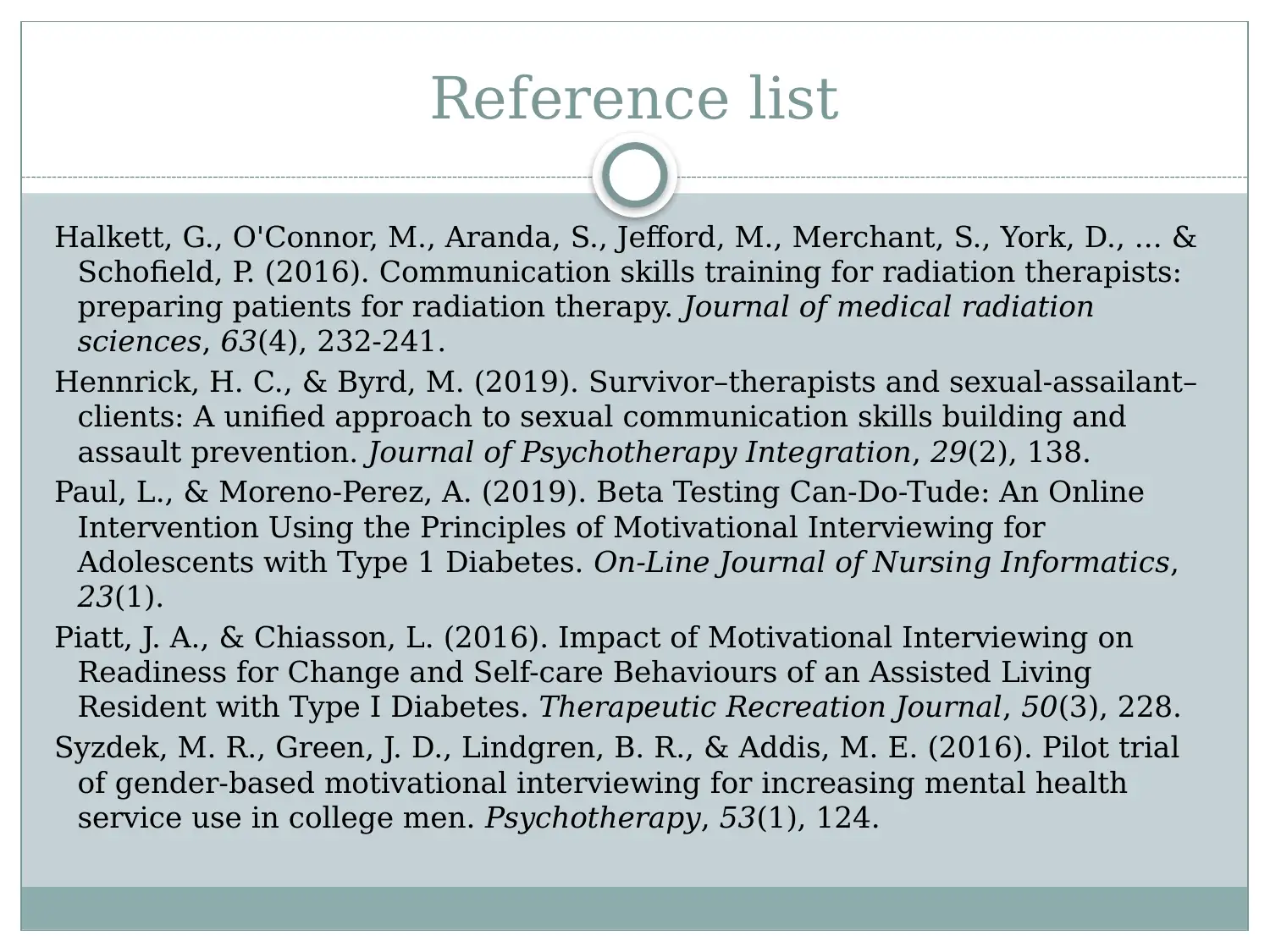







![[object Object]](/_next/static/media/star-bottom.7253800d.svg)